Migrants Day 2024
At the festive Mass, Bishop Rafic Nahra spoke of how difficult this past year has been for all of us: he mentioned the migrants who were killed or kidnapped on October 7th, of the faithful witness of those who chose to stay with their employers, despite the risk to their own lives. He spoke of the emphasis on an attitude of inclusion towards others in the Pope’s messages for Migrants’ Day, and as an essential element of our lives as Jesus’ disciples. Together, we prayed for the communities of migrants and asylum seekers, and in hope for peace.
After the Mass, there was a colorful performance given by the various communities, in which different groups shared traditional dances from their countries, with a wonderfully rich variety of styles of dance and costume from around the world. Afterwards, we met together for a shared meal, in which each community brought their special dishes, and all were happy to taste and spend a festive time together.
Here is the homily of Bishop Rafik Nahra:
It is a special Migrants Day, this year, in the middle of an ongoing and escalating war that started almost a year ago and has caused unbelievable damage to so many Palestinian, Israeli and Lebanese people, but also the Migrants have paid their share. I think of those migrant workers who were abducted or lost their lives on the 7th of October, and also those who, facing the threat of being killed, chose to remain with their employers, and not to leave them alone, exposing their own lives. This has been an extraordinary testimony of fidelity for the Israeli families of these employers, and it will remain so in the eyes of all. Today, in this mass, we want to pray for the end of this dramatic situation: for the multiple people in mourning, for those who were and are being disabled because of the war, the families of the Israeli hostages, the hundreds of thousands of people who lost their homes and all their possessions in Gaza, Lebanon and Israel, but also those many who have been displaced and cannot go back home for fear of the violence. Given the situation of our country nowadays, the message delivered by Pope Francis for the Migrants Day 2024 is particularly telling, not only for the community of Migrants and Asylum Seekers, but for everybody. In this message, the Pope invites the whole Church to (I quote) “rediscover its itinerant nature, as the People of God journeying through history on pilgrimage, “migrating”, we could say, toward the Kingdom of Heaven” (End of quotation); the Pope uses on purpose the word “migrating”. For him, every one of us, Christians, should see our own life as a pilgrimage and should see ourselves as migrants on earth, with all the challenging experiences connected to such a condition. I quote once again the message: “migrants often flee from oppression, abuse, insecurity, discrimination, and lack of opportunities for development. Similar to the Jews in the desert, migrants encounter many obstacles in their path: they are tried by thirst and hunger; they are exhausted by toil and disease; they are tempted by despair.” (End of quotation) These words resonate in a very special way this year. Many local people are experiencing in their own land the difficult experiences that migrants and asylum seekers, unfortunately, have always experienced. At the same time, as often happens in life, dark moments reveal to us that there are many good people around us, perhaps still unknown, who were just waiting for an opportunity to help and support. Our difficulties turn out to be the opportunity to discover these wonderful people who sometimes are Christians of deep faith but could also be people of good will who do not share our faith. They are simply guided by their keen conscience, and they listen to their heart, that is why, when they look at others, they see first a human being who needs help, and not a person of this or that color, of this or that religion or social condition. In a certain manner, the way someone treats “foreigners” is a test of the authenticity both of his human qualities and of his faith. When I say “foreigners”, I intend not only those who have another citizenship, but all those who do not belong to our social, cultural and religious environment. The gospel of today deals about this very capacity to be open to the others and to welcome them. Jesus had created a community of disciples who felt privileged because of their closeness to the Master. They felt responsible for protecting their newly founded community but, in such cases, there is always a risk to become sectarian. Today we see the disciples challenged and trapped in their own willingness to please Jesus and to show him their absolute loyalty: “Teacher (they say), we saw someone driving out demons in your name, and we tried to prevent him because he does not follow us.” Apparently, the disciples are jealous for Jesus, they fear his Name could be misused; but perhaps, secretly in their hearts, they were also jealous for themselves, fearing to lose the exclusivity of the power given to them by Jesus to heal the sick and drive out demons. Often consciously, or unconsciously, when people reject or even practice violence against other people in the name of their zeal for God, it is not God who is really at stake but rather their own will to dominate others. Jesus does not support his disciples in their exclusive attitude, and He invites them to be more inclusive: “Do not prevent him … whoever is not against us is for us”. In the first reading, we find the same temptation when Joshua, the zealous disciple of Moses, wanted to stop the two elders, Eldad and Medad, because they prophesied in the camp, and not in the meeting tent with the other elders, but Moses reproached him: "Are you jealous for my sake? Would that all the people of the LORD were prophets! Would that the LORD might bestow his spirit on them all!". Since 2018, when Pope Francis speaks about the Migrants, he always uses four verbs: to welcome, to protect, to promote, and to integrate. These four verbs express different aspects of one same attitude we are invited to adopt: “inclusion”. The Pope wants us to be people who constantly look for ways to “include” the others in the community, as much as possible, and not people blocked by fear who see the others as a danger to our identity and to our comfort. This year, in the context of the war, we understand that these words do not apply only to Migrants and refugees. All our country is suffering from hate, fear, exclusion and mutual distrust between Arabs and Jews, but also inside each of these communities. The need to welcome and to feel welcomed is stronger than ever before, in everyone of us, also the need to protect and to feel protected, but people are fettered by fear and grudge. The effort to promote and integrate the others is becoming more sectarian because everyone sees the other side as a threat to his existence. In such circumstances, migrants necessarily feel more fragile and accepted only for the work they produce, without much attention to their dignity as human beings who deserve love, respect and understanding. Brothers and Sisters, when things become difficult around us, we always must remember that our lives are in God’s hands and “that all things work for good for those who love God, who are called according to his purpose”. We are here today to pray together, to share our pains and joys, and to strengthen one another in our common witness to Christ in this Holy land. Most of you, when you chose to come to this country, your aim was to make a living and support your families – which is a noble and understandable aim. But beyond this project that is yours, God wanted you to come in order to witness His love among the different populations living here, through your committed and devoted service. Not everything is easy, but we pray God to protect you and strengthen you and keep you faithful to your baptism in the middle of all the difficulties. Know that we love you and thank God for your presence. And please, keep always in your prayer the local Church, of which you are an integral and important part. God bless you all.
Migrants Day 2024 Notre Dame – Jerusalem






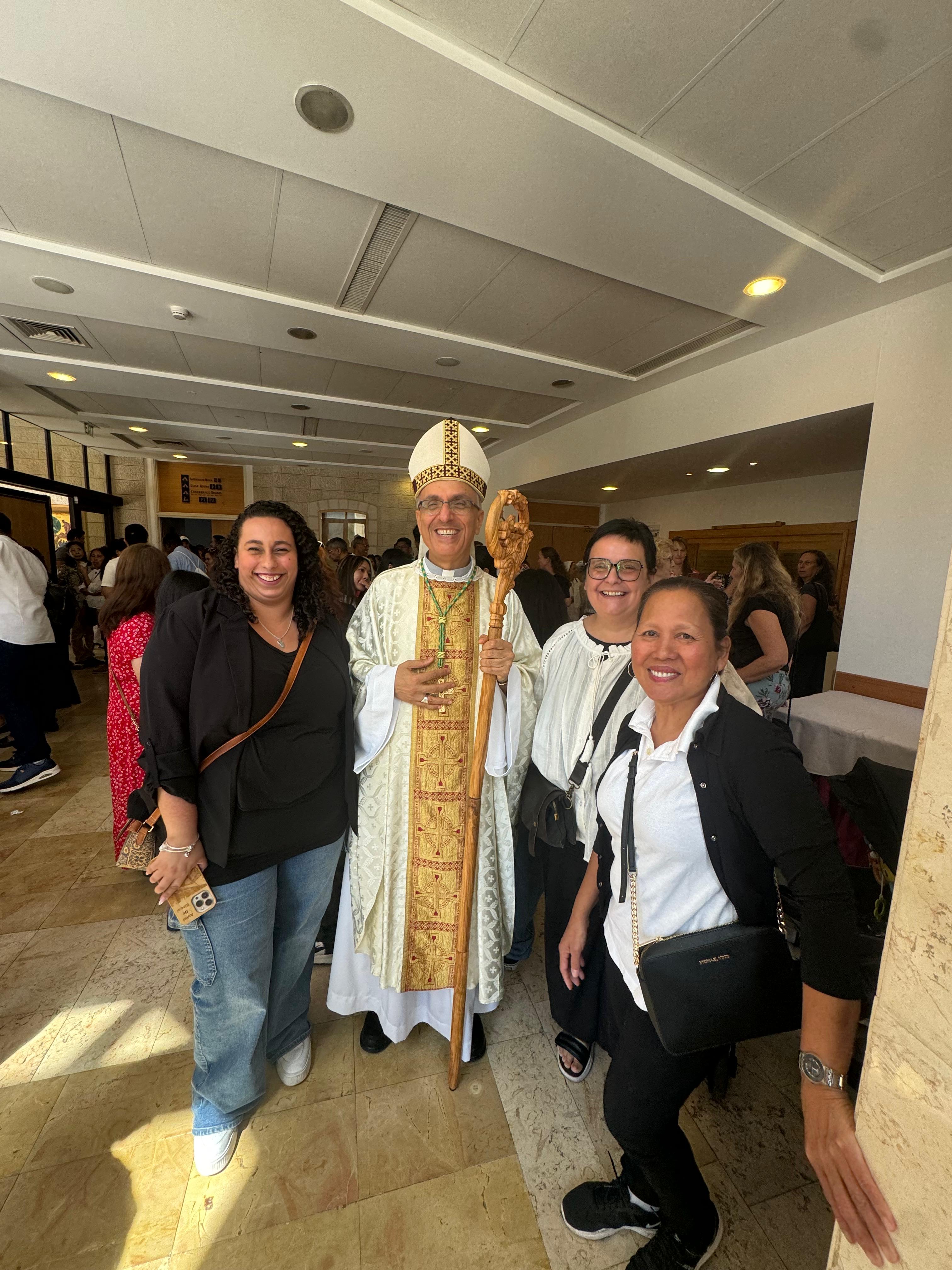
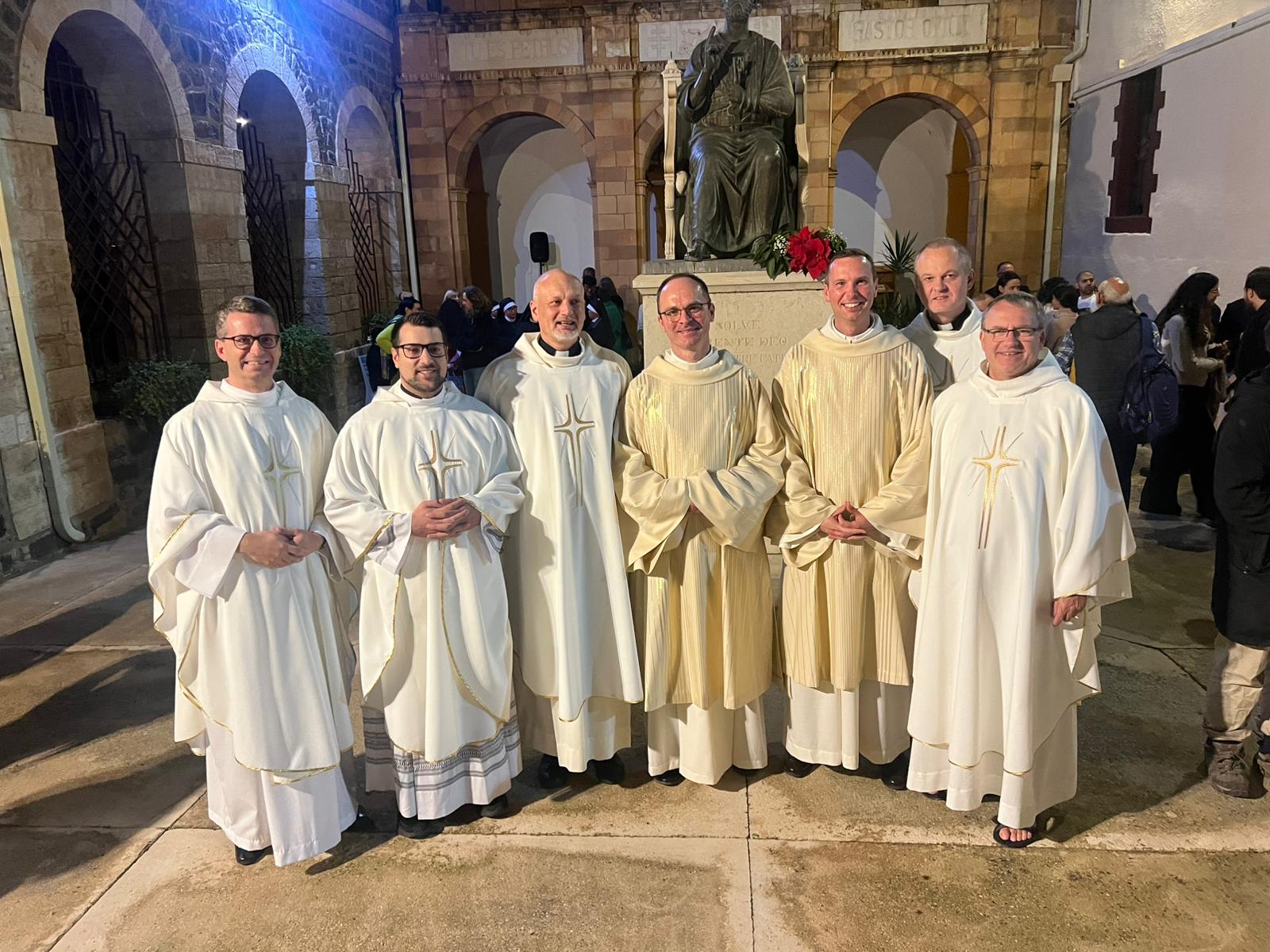 Deacon Ordination of Br. Daniel
Deacon Ordination of Br. Daniel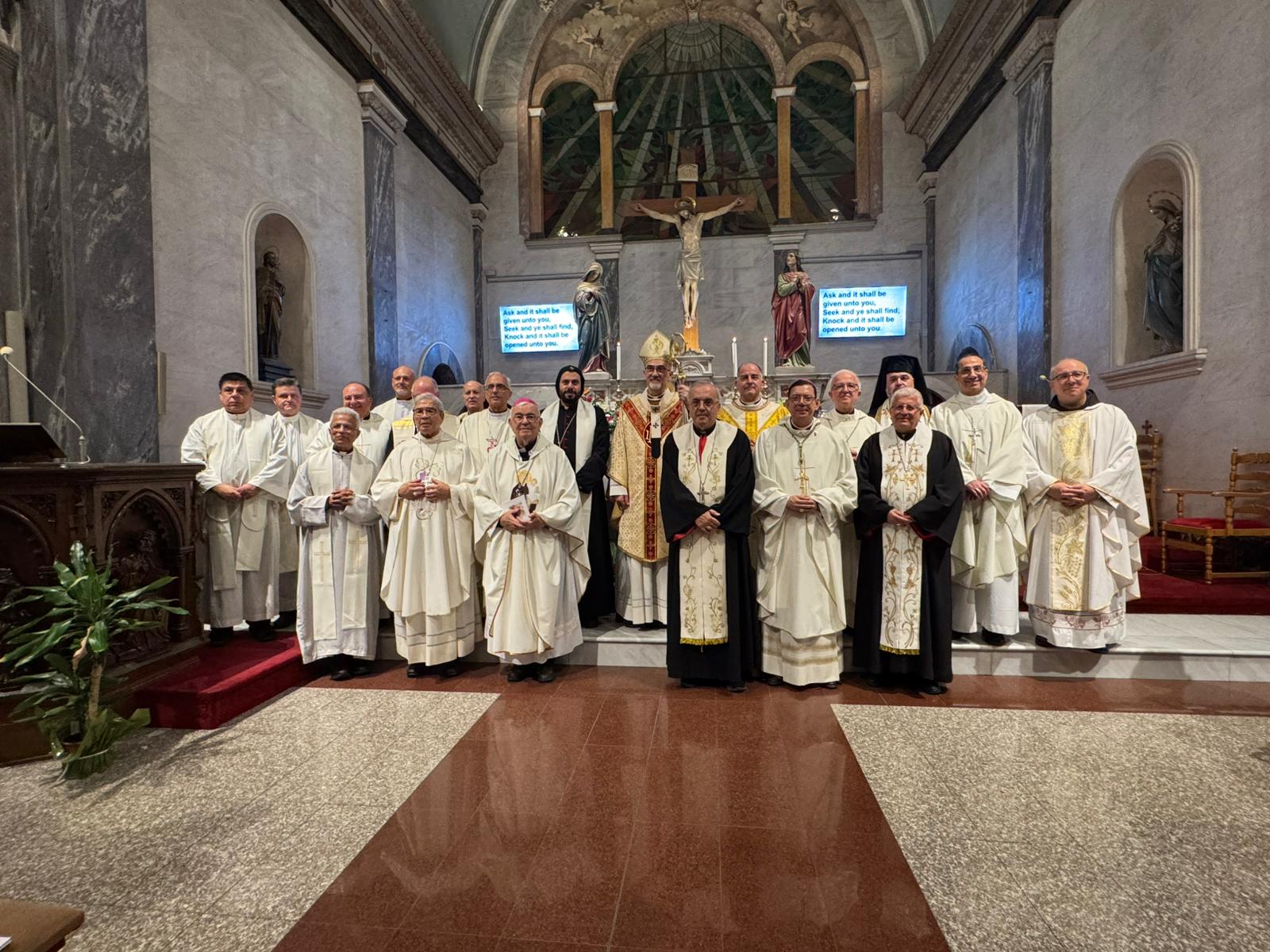 Meeting of Catholic Ordinaries of the Holy Land in Cyprus
Meeting of Catholic Ordinaries of the Holy Land in Cyprus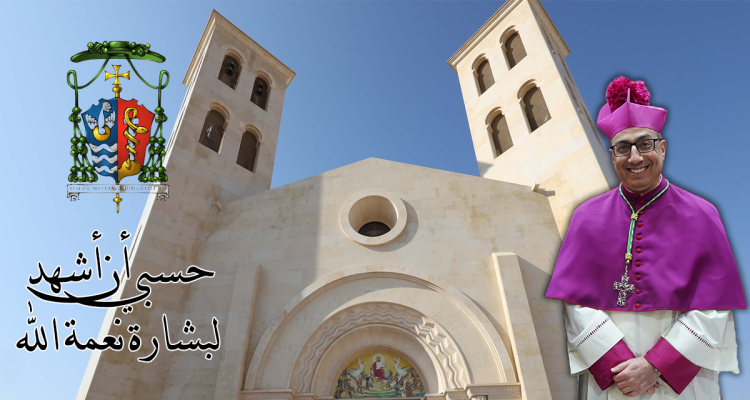 Episcopal Ordination of Mons. Iyad Twal in Jordan
Episcopal Ordination of Mons. Iyad Twal in Jordan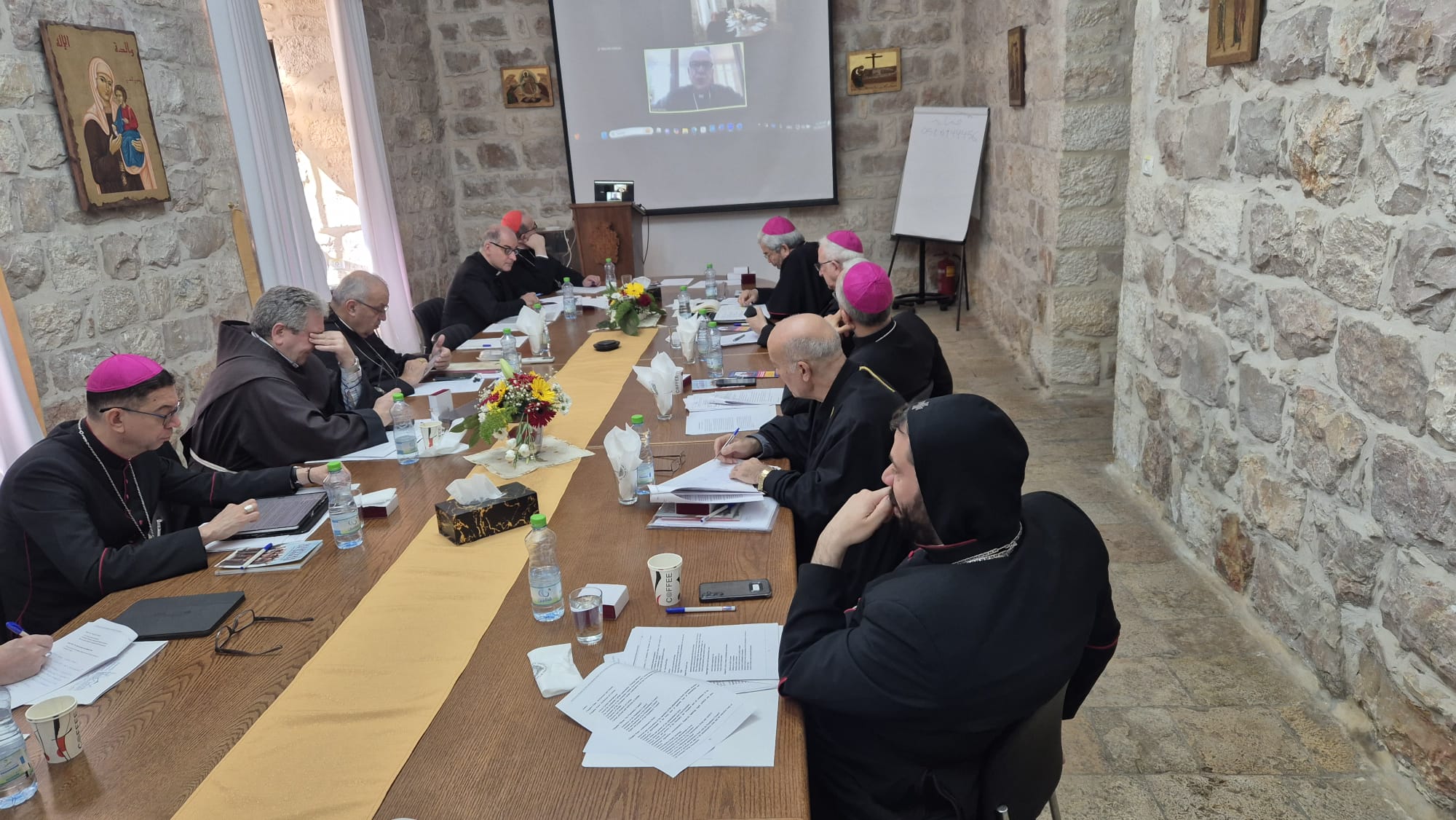 Catholic Ordinaries of Holy Land Meet in Jerusalem 2024
Catholic Ordinaries of Holy Land Meet in Jerusalem 2024 Ordinations of the New Bishop for the Latin Patriarchate
Ordinations of the New Bishop for the Latin Patriarchate New Bishop in the Latin Patriarchate
New Bishop in the Latin Patriarchate Midnight Mass in Bethlehem 2023
Midnight Mass in Bethlehem 2023